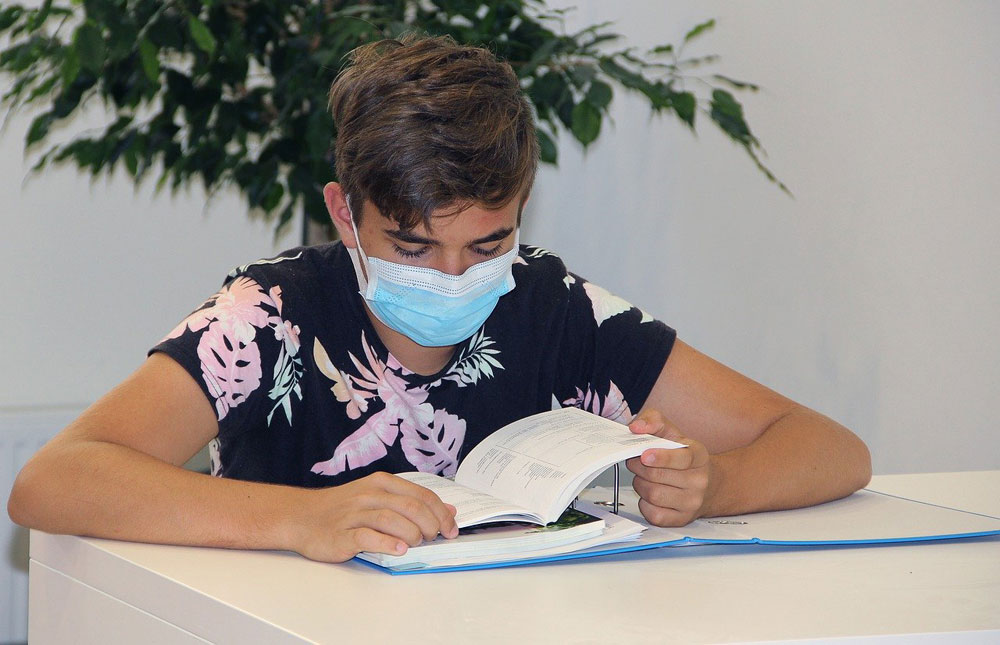
September 10, 2020; Vox
“I know that when I go into this classroom, I start this warmup; I know that I need to bring this; I know that I have lunch every day at 11:15.” Routines like these, Stephen Guerriero tells Vox, are “so linked to middle-school students’ sense of safety.”
But how are schools creating that sense of safety now? Is mental health being neglected in schools?
A recent survey by the SERU Consortium found that students are having difficulty accessing mental health care despite experiencing higher rates of depression and anxiety once the pandemic began.
Experts fear that pandemic stresses could lead to difficulties with learning, and that groups hardest hit by COVID-19, including Black and Latinx Americans, could feel the greatest impact. Behavior disorders are most common among children between the ages of six and 11, but anxiety and depression are most common in teens aged 12–17. Both groups’ conditions have likely been exacerbated by the COVID crisis. On top of that, nearly three in 10 parents say their child is undergoing emotional or mental harm from social distancing and school closures, according to a nationwide Gallup poll in June of this year.
“The communities that already had less room for air have, of course, been hit hardest,” Sarah Y. Vinson, a psychiatrist in the Atlanta area who works with kids across the income spectrum, tells Vox.
Given the global health crisis, protests over racial injustice, and the economic downturn, students face a number of stresses. Child psychologists and mental health experts emphasize how important it is for school staff to nurture emotional connections, encourage self-care, and help students maintain their mental health.
Sign up for our free newsletters
Subscribe to NPQ's newsletters to have our top stories delivered directly to your inbox.
By signing up, you agree to our privacy policy and terms of use, and to receive messages from NPQ and our partners.
So, what are schools actually doing?
According to USA Today, Falls Church City Public Schools in Virginia started online classes on August 24, 2020. The first week was spent establishing class procedures, expectations, and behaviors. Many schools have taken this approach, and although it helps students to get reaccustomed to classes and learning, it does not address the profound mental and behavioral health concerns.
Mary Hoban, chief research officer for the American College Health Association, expresses concern about the potential for colleges to cut spending on mental health services as they struggle with broader financial challenges. But this is not only happening at the higher-educational level. In New Jersey, Governor Phil Murphy’s latest state budget proposal would eliminate the School-Based Youth Services Program, which operates inside 100 school districts and serves an estimated 25,000 to 30,000 students across New Jersey.
Educators and students say the Youth Services Program has saved lives. Among other resources, the program offers mental health counseling to those in need. Students are supported as they deal with stress, anxiety, and trauma. Although the proposed budget allocates $45 million to another mental health and behavioral program, the Children’s System of Care, it’s not as accessible. Funding shortfalls have forced other states, such as North Carolina, to contemplate whether they can afford school-based mental health programs, too.
Despite these struggles, many schools are finding ways to provide the resources and tools students need. Experts recommend that schools incorporate social and emotional learning in classes to help students connect with who they are—their emotions, identity, values—and how that fits into the larger world. The Collaborative for Academic, Social, and Emotional Learning (CASEL) is now offering guidance on how to support students during the pandemic, which is already being used by numerous school districts across the country, including those in Chicago.
Additionally, schools are leveraging external programs that include:
- Active Minds, which empowers students to change the conversation about mental health, offers awareness and education programs, policy and systems change programs, and strategies that impact campus/community culture
- JED Foundation, which partners with high schools and colleges to strengthen their mental health, substance misuse and suicide prevention programs and systems while equipping teens and young adults with the skills and knowledge to help themselves and each other
- PeaceLove Foundation, which offers multi-generational, asynchronous classes/workshops that support and strengthen students’ self-care and wellness and teach them how to practice creativity and find peace of mind in a safe, enjoyable way
Though the stresses and ambiguities of this time fall on nearly everyone, in the end, it’s the children who may have to carry that legacy forward, and in the most decisive ways. Ensuring students need inviting spaces where they can seek help in ordering the chaos they face, and that’s the responsibility of the larger community.—Deidre Fraser










